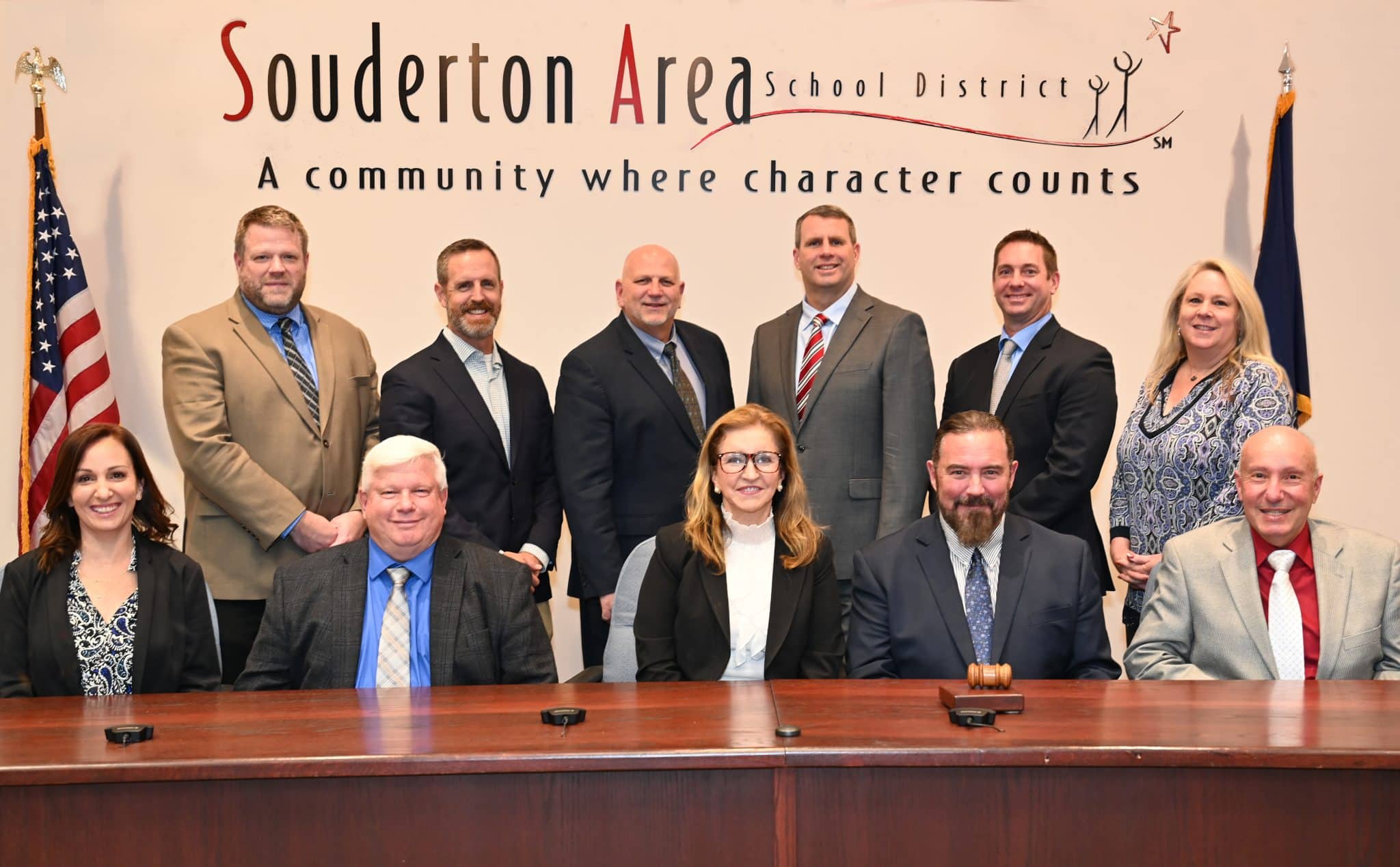A Souderton Area School District ban against two parents and a former student executed last November was finally lifted “by mutual agreement in March,” though litigation continues seeking damages for those who had been banned from school board meetings and district property.
A total of six plaintiffs – of which three were banned from school board meetings and district properties – allege their Constitutional First Amendment right to free speech was violated without due process. They seek an undisclosed amount in damages.
Sara Rose, deputy legal director at the American Civil Liberties Union Pennsylvania, said the ban extended to the parents ability to pick up and drop off their children from district buildings, they were unable to leave their cars during such times, and extended to all of the district’s campus properties.
Under the previous ban’s terms the parents were required to alert the district if they were picking up or dropping their children off on school property and could not leave their cars, she said.
“The letters our clients got said they would be arrested for trespass if they entered school property, including school board meetings. Two of the parents have students [currently attending school] in the district,” Rose said. “It was a strict draconian ban.”
Mia Perez, a judge for the U.S. District Court Eastern District of Pennsylvania in Philadelphia, “dismissed as moot” a motion for a temporary restraining order “to prohibit the Souderton Area School District from enforcing a ban on two parents and a former student from attending school board meetings,” according to a June 2 ACLU PA press release.
“We’re asking the judge to allow Souderton Area For All to hold demonstrations on school property immediately before school board meetings,” Rose said.
The November 2024 lawsuit made on behalf of six people by ACLU PA and law firm Ramsingh Legal, PLLC of Harrisburg asserted Souderton Area School District violated the six plaintiffs free speech rights without due process.
“Even someone who might disrupt a school board meeting is entitled to due process – before they are categorically banned from all school property,” Rose said.
She said there is a damages claim for those who were banned and the lawsuit requests Souderton Area For All be permitted to hold demonstrations on school property immediately before school board meetings. Two other plaintiffs are seeking an order prohibiting the district from requiring members of the public to show identification to attend school board meetings.
Souderton Area For All is a grassroots non-profit group whose website states its mission is to “cultivate diversity, inclusion and equity.”
Rose said peaceful demonstrations are currently permitted well away from where public school board meetings are held.
“If the board meetings are open to the public, and people have a right to speak during public comment, this implies to us they allow people to demonstrate ahead of the meetings,” she said.
A request for comment from Souderton Area School District school board was unsuccessful.
Rose added among the legal complaint’s allegations was that the school board allowed a group aligned with it – who sang religious songs and said prayers – was permitted to hold a demonstration “but not our clients. Viewpoint discrimination is one of our points.”
Rose said the next steps could move to “discovery,” which is a process where all people involved must submit their facts for legal examination.
She said the facts of the case are currently not in dispute.
“In order to receive damages the judge would have to rule about whether or not the district violated my client’s rights,” Rose said.
She said some community members had been denied access to school board meetings because they did not show identification in order to be admitted.
“We are also asking for an order saying they cannot do that,” Rose said of denying people the ability to attend meetings without identification.
“When people come out and express themselves in local government it should be something to celebrate,” Rose said, adding that the free speech public access process is violated “by allowing one group and not another to speak.”






